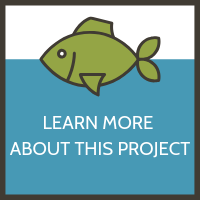Authors: Mary Kate Cartmill, Ivy Blackmore, Catherine Sarange, Ruth Mbeyu, Christopher Cheupe, Joaquim Cheupe, Elizabeth Kamau-Mbuthia, Lora Iannotti, Andrew Wamukota, Austin Humphries, and Carolyn Lesorogol
Abstract
This study examines barriers to fish consumption during the complementary feeding period in two coastal counties of Kenya with high rates of child malnutrition. Study findings indicate that young child fish consumption is impacted by factors related to accessibility, food preferences, and caregiver’s knowledge and beliefs about fish during the complementary feeding period. These factors are influenced by prominent community figures such as elder women and health workers, whose own beliefs and understandings are impacted by underlying cultural norms, potentially limiting fish consumption. To our knowledge, this is the first study conducted in the coastal region of Kenya to focus on understanding fish consumption attitudes and beliefs during the complementary feeding phase. Our findings represent a critical first step towards the creation of more effective policies and interventions to address the significant nutritional disparities that exist in the study population.
Read the full publication at https://doi.org/10.1371/journal.pone.0265310.
Published March 28, 2022

